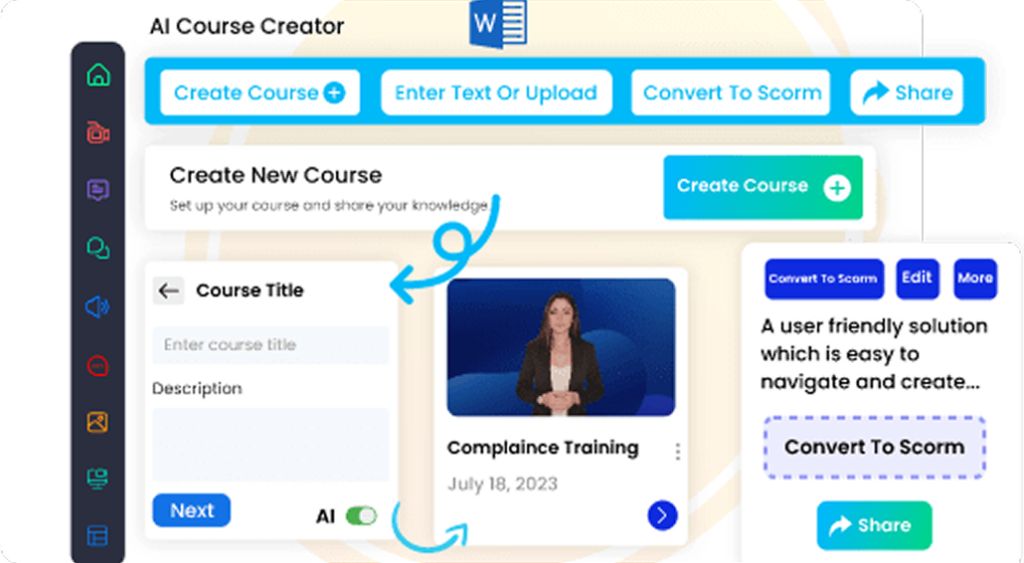Why Company Culture Matters in 2025
Understanding the core values and beliefs of an organization is crucial for both employees and employers. In today’s fast-paced business environment, having a clear company culture is vital to keeping employees engaged, aligned with business goals, and fostering a productive workplace. Companies with strong cultures see higher employee retention, better communication, and increased productivity. As the world becomes more interconnected and competitive, company culture has also evolved, focusing more on inclusion, sustainability, and empathy.
Strong company culture has proven to be a differentiating factor for organizations when it comes to attracting top talent. Companies with a positive, transparent, and inclusive culture create a working environment where employees feel valued and motivated to perform at their best. According to studies, employees who align with their company’s culture are 35% more likely to stay longer with their employers, leading to a higher retention rate.
The Key Components of Company Culture
Every company’s culture consists of shared values, traditions, and behaviors that guide the organization. The key components of a company culture include:
- Core Values: The fundamental beliefs that drive decisions and actions.
- Work Environment: Whether the environment is collaborative, competitive, or individualistic.
- Leadership Style: How leaders influence the culture through their actions and policies.
- Communication Patterns: The methods and frequency of communication among employees and management.
What is Company Culture Training?
Company culture training involves teaching employees about the company’s values, expectations, and how to align with its culture. The goal is to help employees understand their role in reinforcing and shaping the company’s culture. By fostering a deeper understanding of how their actions impact the organization, company culture training ensures that employees feel connected to the mission and values of the business.
Effective training company culture programs should cover several aspects, such as:
- Aligning personal values with company values.
- Understanding organizational goals and how to contribute to them.
- Developing effective communication skills and a collaborative mindset.
- Implementing behavior expectations and conflict resolution techniques.
How to Train Employees on Company Culture
When implementing training company culture, there are a variety of strategies that can be adopted to ensure employees not only understand but also embrace the company culture. Here are some best practices for how to train employees on company culture:
1. Start Early: Incorporate Culture into Onboarding
The first opportunity to introduce new hires to your company culture is during onboarding. Make culture a central part of your onboarding process by:
- Introducing company values early.
- Providing examples of cultural behavior from leadership.
- Incorporating cultural training modules in your onboarding platform.
2. Use Workshops and Interactive Training
Workshops can be an engaging way to immerse employees in company culture. These can be in-person or virtual and should focus on practical applications, such as role-playing scenarios or culture-based team-building exercises. Real-life examples and stories from leadership can make the training more relatable and impactful.
3. Foster Continuous Learning and Reflection
Company culture training shouldn’t end after onboarding. Offer ongoing workshops, seminars, and learning materials to keep the culture alive. Encourage employees to reflect on how they’re embodying company values and behaviors. The most effective companies treat culture training as a continuous journey, not just a one-time event.
4. Lead by Example
Leaders play a critical role in reinforcing company culture. Leaders should model the behavior and values that the company promotes, setting the tone for the entire organization. For example, if your company promotes openness and transparency, leaders must be willing to share their vision and concerns openly, setting an example for employees to follow.
Learning Built Around Your Goals.
Discover how our courses can align with your training goals and drive real results.
Benefits of a Strong Company Culture
A robust company culture can have a lasting impact on an organization. Here are the key benefits:
- Improved Employee Engagement: Employees feel more connected to the organization and motivated to perform their best.
- Better Recruitment and Retention: Companies with strong cultures are more attractive to top talent and can retain employees longer.
- Enhanced Communication: Clear cultural alignment fosters open and effective communication across all levels of the organization.
- Increased Productivity: When employees share a common purpose, they work more efficiently and cohesively.
How to Measure the Effectiveness of Company Culture Training
Measuring the success of company culture training is essential for understanding its impact. Here are some ways to assess training effectiveness:
- Surveys and Feedback: Conduct surveys and gather feedback from employees to understand how well they’ve embraced the company culture.
- Employee Retention Rates: A positive culture often results in higher retention rates.
- Performance Metrics: Track how well employees are performing and collaborating within the cultural framework.
Common Challenges in Company Culture Training
While training company culture can be incredibly beneficial, there are also challenges to overcome:
- Resistance to Change: Some employees may be resistant to adopting new behaviors or practices.
- Inconsistent Leadership: If leaders don’t model the desired cultural behaviors, employees may be confused or disengaged.
- Lack of Engagement: Training that is not interactive or relevant may fail to engage employees and have minimal impact.
How can CogniSpark AI help you?
A strong company culture isn’t just a set of values on paper—it’s a lived experience that shapes behavior, decision-making, and employee engagement across all levels of the organization. Company culture training ensures that employees not only understand your organization’s mission, vision, and values but also embody them in their daily interactions and responsibilities.
With CogniSpark AI, culture training becomes dynamic, inclusive, and scalable. Its intelligent AI Tutor offers interactive, scenario-based learning that helps employees internalize cultural principles through real-world applications. Whether it’s inclusivity, innovation, collaboration, or ethical behavior, the AI Tutor delivers personalized guidance that adapts to each learner’s role and environment.
Using CogniSpark’s intuitive authoring tool, L&D teams can quickly build and update modules that reflect the unique tone, practices, and values of your organization. From onboarding new hires to reinforcing culture during organizational change, CogniSpark helps you deliver consistent messaging that resonates with every employee.
CogniSpark also supports multilingual delivery, peer engagement, and progress tracking—making it ideal for global teams. By aligning everyone to a shared cultural standard, you cultivate a more cohesive, motivated, and mission-driven workforce.
Conclusion
In 2025, company culture training is more essential than ever to build cohesive, motivated, and high-performing teams. By adopting a strategic approach to training company culture, organizations can ensure that their employees not only understand the company’s values but also live them every day. Investing in a strong company culture will not only improve employee satisfaction but also lead to greater business success. With the right tools, ongoing training, and leadership commitment, company culture can become the driving force behind your organization’s growth.
With the increasing importance of workplace culture, it’s crucial that businesses recognize its role in attracting top talent, improving retention rates, and driving employee performance. If you’re ready to make company culture a central part of your business strategy, start by implementing effective training programs and lead by example.
Access 100+ fully editable, SCORM-compatible courses featuring an integrated AI Tutor and an in-built authoring tool. Seamlessly compatible with any LMS, these courses are designed to elevate your training programs.
Explore Our eLearning Course Catalog






















